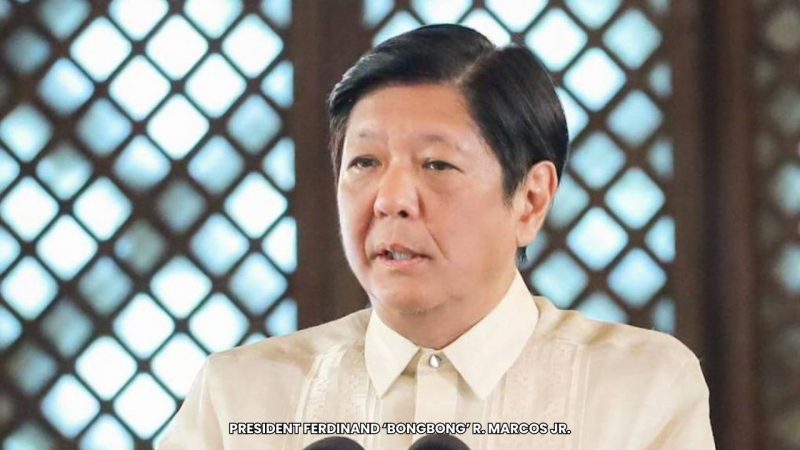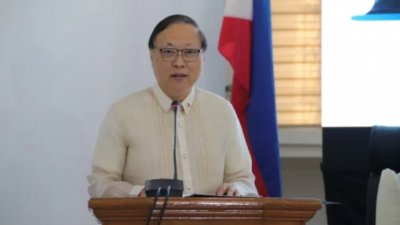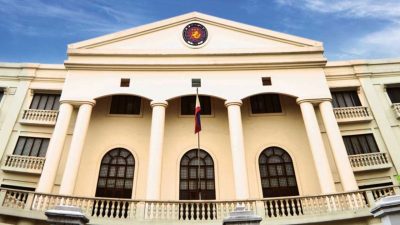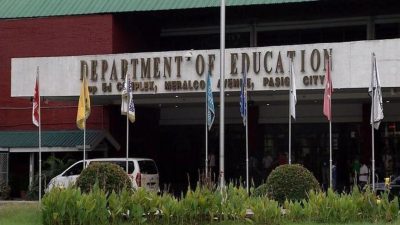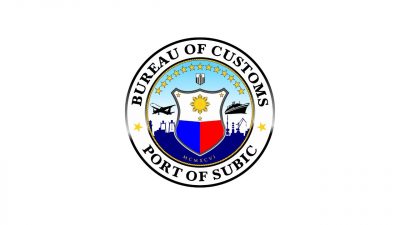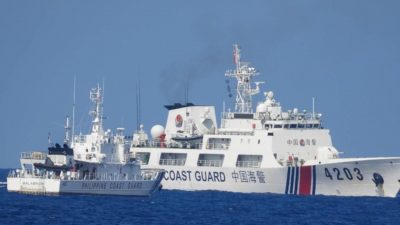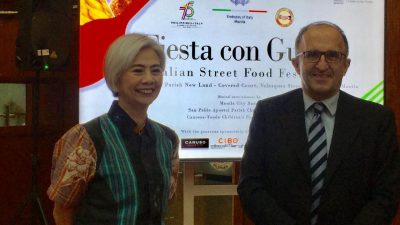By Junex Doronio & Liza Soriano
MANILA — In his third State of the Nation Address (SONA) on Monday (July 22, 2024), President Ferdinand R. Marcos Jr. reiterated the Philippines’ unwavering commitment to defending its rights over the West Philippine Sea (WPS), a statement that earned him several standing ovations from guests and government officials.
Additionally, his announcement that he is banning the controversial offshore gaming operations, known as POGOs also drew a similar reaction from inside the cavernous plenary hall of the House of Representatives in Quezon City.
“Amid challenges to our territorial sovereignty, we will continue to assert our rights and interests through fair and peaceful means, adhering to the rules-based international order. Diplomatic channels and mechanisms remain the only acceptable methods for resolving disputes,” Marcos said.
Marcos highlighted that peace and community-building are integral to the Philippines’ approach, especially as the country prepares to chair and host the ASEAN Summit in 2026.
He also underscored the Philippines’ commitment to de-escalating tensions with other claimant nations while maintaining its principles and position.
“As more Filipinos recognize the importance of securing and defending our vast territories, the government will continue to strengthen our defenses and collaborate with like-minded states to enhance our security,” Marcos stated.
The President emphasized the nation’s growing awareness and strategic approach to improving aerial and maritime domain awareness. “We are intensifying our defense posture through both self-reliance and partnerships with like-minded nations,” he said.
The WPS, Marcos reiterated, is an integral part of the country’s heritage. “Ito ay atin. At ito ay mananatiling atin, hangga’t nag-aalab ang diwa ng ating mahal na bansang Pilipinas. Pagtitibayin at palalaguin natin ang kamalayan at kaalaman ng buong bansa, at titiyaking maipapasa natin ito sa ating kabataan at ating susunod na mga salinlahi.” (This is ours. And it will remain ours as long as our love for our country, the Philippines, remains steadfast. We will strengthen our nation’s awareness and knowledge of this territory and ensure it is passed down to our youth and future generations),” he concluded.
In what could be his most peaceful SONA, the President also highlighted the ongoing success of the government’s anti-drug campaign, which has led to the seizure of P44 billion worth of illegal drugs across more than 71,500 operations.
PBBM bans POGOs
Marcos also declared that he is implementing a ban on Philippine Offshore Gaming Operators (POGOs) saying that criminal activities associated with POGOs must be stopped.
“At ngayon po, naririnig namin ang malakas na sigaw ng taumbayan laban sa mga POGO. Disguising as legitimate entities, their operations have ventured into illicit areas far beyond gaming, including financial scamming, money laundering, prostitution, human trafficking, kidnapping, brutal torture, and murder,” Marcos said in his speech.
“Effective today, all POGOs are banned,” the Chief Executive added.
He also instructed the Philippine Amusement and Gaming Corporation (PAGCOR) to wind down and cease the operation of POGOs by the end of the year.
Lawmakers had earlier expressed hope that Marcos would address the issue of POGOs in his address. This comes in the wake of a Senate investigation into illegal POGOs, particularly in Porac, Pampanga, and Bamban, Tarlac, which were previously raided by authorities.
Bloodless war
“Our bloodless war on dangerous drugs continues to follow the ‘8 Es’ of an effective anti-illegal drugs strategy. Extermination has never been part of this approach,” Marcos stated.
The President reported that over 97,000 drug suspects have been arrested to date, including more than 6,000 high-value targets. Among those apprehended, approximately 440 were government employees, 42 were uniformed personnel, and 77 were elected officials.
To disrupt drug operations further, assets and dirty money amounting to over P500 million have been frozen. With a robust case build-up and efficient prosecution, the drug conviction rate stands at a notable 79 percent. Additionally, the number of drug-affected barangays has decreased by 32 percent.
On the topic of peace and order, Marcos emphasized that “lessons from history and current events” have shown that genuine prosperity and social development hinge on maintaining peace. Despite the challenges and diversity within the country, Filipinos have consistently invested in strengthening the pillars of peace.
The President noted that law enforcement agencies, including the Philippine National Police (PNP), Armed Forces of the Philippines, and Philippine Coast Guard, are continually enhancing their capabilities to uphold peace and secure the nation’s territory. He acknowledged an overall decrease in crime rates and improved crime resolution efficiency but stressed that building public trust remains a priority.
Interior Secretary Benjamin Abalos Jr. also praised the administration’s anti-drug efforts, stating, “We go after high-value targets, and our focus is not only on enforcement but also on rehabilitation.”
Peaceful SONA
The President’s third SONA was marked by a peaceful atmosphere. National Capital Region Police Office (NCRPO) chief Maj. Gen. Jose Melencio Nartatez reported the monitoring of approximately 7,510 individuals, including about 3,010 anti-Marcos protesters who gathered early along Tandang Sora Avenue in Quezon City. Meanwhile, around 4,500 pro-government supporters were present along Commonwealth Avenue.
Nartatez commended the adherence to policies and laws by both groups, declaring this year’s SONA as “safe, peaceful, and orderly” with no incidents of unrest. “We appreciate the cooperation of the numerous organizations and rally organizers who respected their limits, as well as the public for contributing to the smooth and peaceful outcome of SONA 2024,” he concluded.
Wifi program expansion
Marcos Jr. also pledged to expand the government’s free WiFi program and enhance internet connectivity through policy reforms and streamlined processes.
The Department of Information and Communications Technology (DICT) has connected almost 10 million devices to 13,000 free WiFi areas nationwide. Marcos plans to further expand this reach to more schools and remote communities.
The National Fiber Backbone’s first phase is complete, with phases two and three underway, set for completion by 2026. This infrastructure aims to increase bandwidth capacity and improve connectivity for the 77% of households currently online.
Marcos promised full government support for telecommunications companies to establish more common towers, addressing the low internet penetration. The recently launched National Cybersecurity Plan will bolster the country’s cyber defense capabilities, ensuring IT development aligns with economic goals.
Approval of 2025 National Budget
The chief executive also urged Congress to promptly approve the proposed PHP6.532 trillion national budget for 2025. He emphasized the budget’s careful preparation and expressed hope for its timely passage and strict adherence.
The budget, which reflects administration priorities like food security, health care, and infrastructure, aims to fund impactful programs. Marcos highlighted a new grant under the Pantawid Pamilyang Pilipino Program to support the health and nutrition of young children from poor families.
Budget Secretary Amenah Pangandaman announced that the 2025 National Expenditure Program (NEP), which will form the basis for the General Appropriations Bill (GAB), will be submitted to Congress on July 29. Once approved, the GAB will become the General Appropriations Act upon presidential signing.
Marcos’s third SONA took 1:23:54. It ended at exactly 5:27 p.m. on Monday 22 July 2024.
(el Amigo/mnm)

